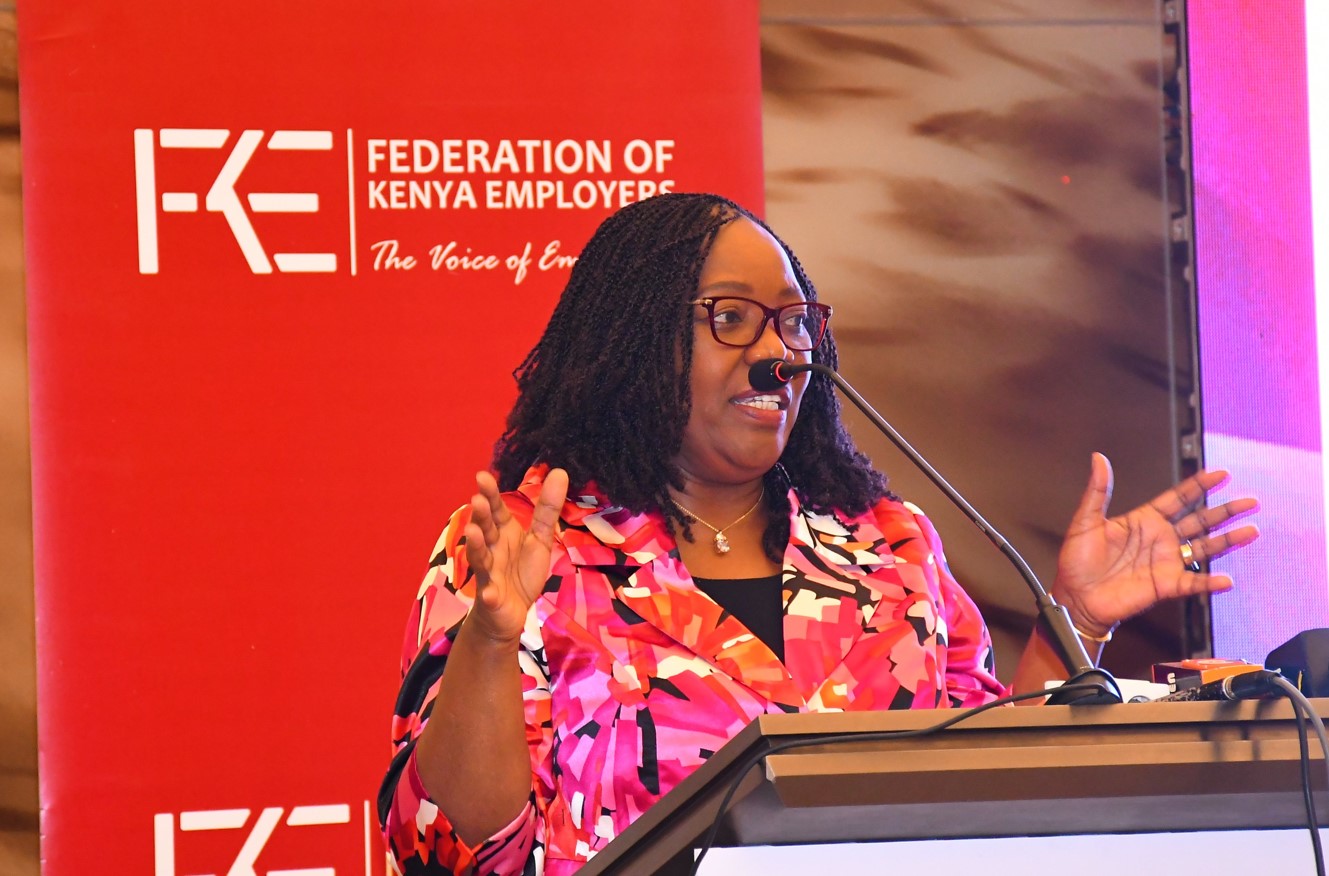FKE to Ruto: Rising taxes are draining employees' take-home pay

According to FKE's CEO, Jacqueline Mugo, the recent tax changes are squeezing workers' take-home pay and forcing employers into difficult positions regarding compliance with labour laws.
The Federation of Kenya Employers (FKE) has raised concerns over the impact of new payroll deductions on employees' living standards.
According to FKE's CEO, Jacqueline Mugo, the recent tax changes are squeezing workers' take-home pay and forcing employers into difficult positions regarding compliance with labour laws.
More To Read
- Shrinking opportunities, growing skills gap: What youths say they need to thrive
- Why employers who fail to remit statutory deductions could face criminal charges
- Kenyans concerned over SHA premiums, confusion on dependents, and unclear Lipa Pole Pole model
- Youth redefine ‘good jobs’ amid rising unemployment, skills gaps and AI fears
- Employers raise alarm over Kenya’s shrinking investment appeal, job losses
- FKE warns of job losses as high taxes force business closures, urges relief in budget
Mugo, speaking at a press briefing on Friday, pointed out that the introduction of new taxes has led to numerous distress calls from both employers and employees.
The primary issue, she said, is that employees' paychecks are now much lower than expected, and in many cases, below the legal threshold of one-third of an employee's total earnings, which they should take home.
"Since the new payroll deductions were introduced, we have received a lot of distress calls from our members and employees themselves because the take-home pay is too little and it's below the threshold of one-third that employees are supposed to take home," Mugo explained.
The federation has also raised concerns that employers are being caught between a rock and a hard place.
They are forced to make deductions beyond the legal limit of two-thirds of an employee's total earnings each month, a violation of labour laws.
"They are supposed to deduct not more than two-thirds of an employee's total earnings each month but they are in a way forced to be in breach because of the level of deduction," Mugo explained.
As a result, many employers are finding themselves in a position where they either have to top up their employees' salaries or violate labour laws to comply with the new tax deductions.
"The total of the deductions to the payroll is that employers are either having to top up employees' salary or having to be in breach if they are to comply," Mugo added.
Review statutory deductions
In a bid to address this, FKE has urged the government through the Ministry of Labour and Social Protection to review the statutory deductions, which have recently been applied to total earnings, instead of just basic pay.
Mugo cited Section 19(III) of the Employment Act, which clearly outlines the limit on payroll deductions, but said the current deductions are pushing employees' living standards to the breaking point.
"Without prejudice to any right of recovery of any debt due, and notwithstanding the provisions of any other written law, the total amount of all deductions which may be made by an employer from the wages of his employee at any one time shall not exceed two-thirds of such wages or such additional or other amount as may be prescribed by the Minister either generally or in relation to a specified employer or employee or class of employers or employees or any trade or industry," reads the law.
The new taxes, which include contributions to the Affordable Housing Programme, began in March 2024. President William Ruto had pushed for the levy as part of his broader agenda to provide affordable housing and create jobs.
However, despite challenges from those opposing the new tax, the government ensured that all constitutional requirements were met, and the levy remained in place.
Starting October 1, another payroll deduction was added with the transition from the National Health Insurance Fund (NHIF) to the Social Health Insurance Fund (SHIF).
These premiums are tied to an employee's basic pay, meaning higher earners face larger deductions.
Additionally, starting in January, Kenya's salaried employees will also start contributing more to the National Social Security Fund (NSSF), with minimum contributions rising from Sh420 to Sh480 and higher-income earners paying as much as Sh4,320.
While Mugo expressed support for the enhanced pension contributions since FKE is a board member of NSSF, she noted that the cumulative impact of these multiple deductions is making it increasingly difficult for employees to manage their finances.
"We thought that employees should have a decent pension when they retire but it's the sum total of these deductions that are making it very difficult for employers to comply with the law and also give employees a decent take-home pay," she said.
Looking ahead, Mugo assured that FKE will continue engaging with the government and relevant ministries to find a balance that improves social protection while allowing workers to have a decent income and employers to meet their legal obligations.
Top Stories Today













































